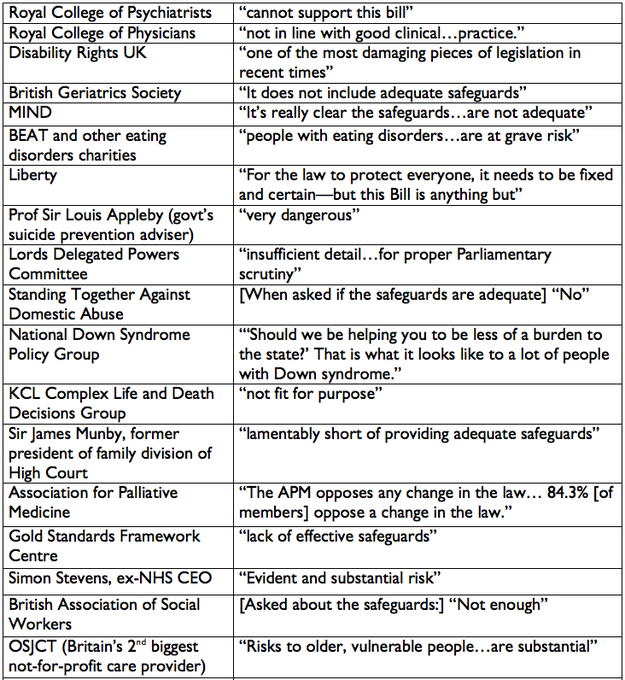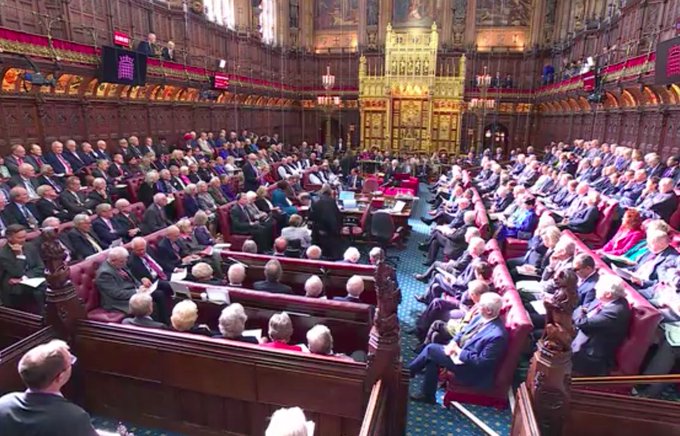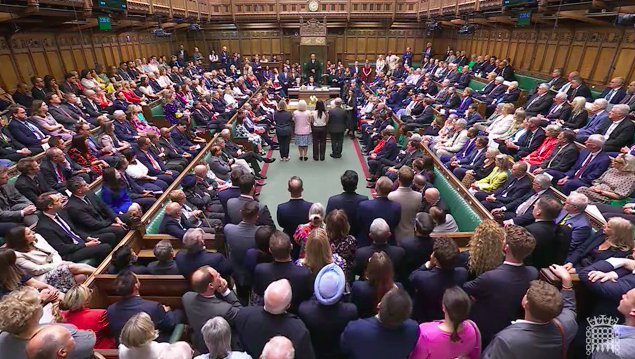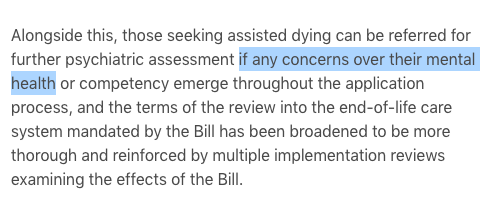
Senior editor @firstthingsmag | Co-author, Cambridge Introduction to Samuel Johnson | Newsletter: https://t.co/yj4GPUYs00
How to get URL link on X (Twitter) App


https://twitter.com/nmdacosta/status/20111442726960010241. Falconer admits people will die under the bill because they are poor.

 1. AS driven by poverty (eg Tanni Grey-Thompson’s amendment, no. 58 on the list).
1. AS driven by poverty (eg Tanni Grey-Thompson’s amendment, no. 58 on the list).https://x.com/ddhitchens/status/1994020364809326904

 1. Baroness Finlay. Former BMA president, major figure in the palliative care world. Knows the whole subject inside out.
1. Baroness Finlay. Former BMA president, major figure in the palliative care world. Knows the whole subject inside out.https://x.com/ddhitchens/status/1991914374383227265

https://twitter.com/LordCFalconer/status/9134010608107233332. Lord Falconer, 2018: the Salisbury Convention—which limits the Lords’ ability to reject a bill—doesn’t apply if a bill wasn’t part of the governing party’s manifesto.
https://x.com/LordCFalconer/status/996694012923990017

 1. The Lords is taking this seriously.
1. The Lords is taking this seriously.https://x.com/lucianaberger/status/1969081202788217261

 1. Legislative precision. The bill amends the Suicide Act, changing the law on suicide:
1. Legislative precision. The bill amends the Suicide Act, changing the law on suicide:https://x.com/RajivShah90/status/1968771693746221497

 1. “The government’s own estimate is that...less than 1% of deaths would be assisted after ten years.”
1. “The government’s own estimate is that...less than 1% of deaths would be assisted after ten years.”https://x.com/ddhitchens/status/1919409056147501230


https://x.com/TheAtlantic/status/1959484606081642684


 1. Janet Daby MP says she was reassured because there would be “further psychiatric assessment” in the event of concerns about a patient’s “mental health”.
1. Janet Daby MP says she was reassured because there would be “further psychiatric assessment” in the event of concerns about a patient’s “mental health”.

https://x.com/ChelseaRoff/status/1935245958243364913B is for Burden.
https://x.com/ddhitchens/status/1935420838125380085

https://x.com/ddhitchens/status/1891054193881895204

 2. The first thing to say is that—if they have a 6-month prognosis—they absolutely qualify.
2. The first thing to say is that—if they have a 6-month prognosis—they absolutely qualify.
https://x.com/dignityindying/status/19348839412629958112. The most comprehensive recent study is by the bioethicist Professor David Albert Jones.


 2. Originally DID was the Voluntary Euthanasia Society—co-founded by Killick Millard, who lobbied for the release of an SS camp doctor he saw as a fellow-traveller.
2. Originally DID was the Voluntary Euthanasia Society—co-founded by Killick Millard, who lobbied for the release of an SS camp doctor he saw as a fellow-traveller.https://x.com/yuanyi_z/status/1934215624508559572

 2. This provides a significant incentive for assisted suicide.
2. This provides a significant incentive for assisted suicide.https://x.com/ddhitchens/status/1903920828007497815
https://x.com/RCPhysicians/status/1932058421588537778

https://twitter.com/JeevunSandher/status/19305983256794402112. …like selecting a witness list unbalanced 80-20 towards bill supporters:
https://x.com/ddhitchens/status/1924556798817702339


 2. I spoke to staff—pro-bill, anti, and somewhere in between—at 17 adult hospices across England and Wales, a tenth of the total.
2. I spoke to staff—pro-bill, anti, and somewhere in between—at 17 adult hospices across England and Wales, a tenth of the total.
https://x.com/historykev/status/1896862370632446190

 2. There would be no limit on profits.
2. There would be no limit on profits. 